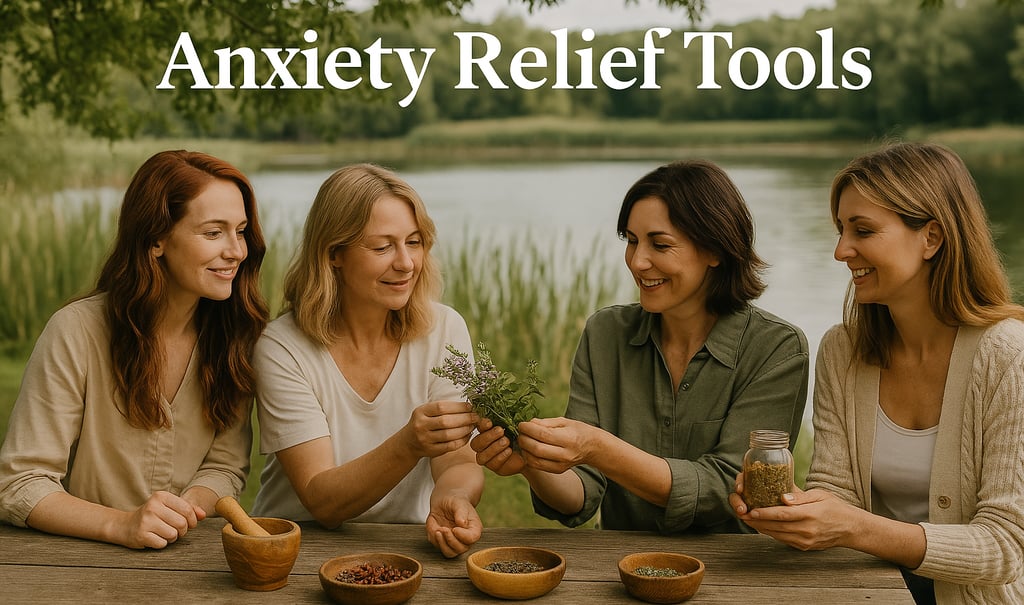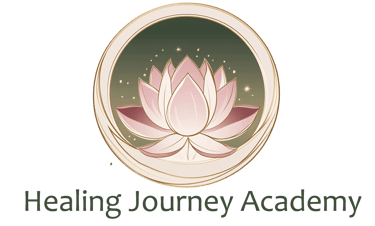Natural Remedies for Anxiety
Are herbal remedies for anxiety effective or just hype? In this blog post, we dive into the science behind popular natural treatments like kava, passion flower, valerian, and more. Discover the risks, benefits, and how to safely incorporate these remedies into your wellness routine. Plus, learn when it’s time to seek professional support.Blog post description.
3/28/20253 min read


Natural Remedies for Anxiety: Do They Really Work?
The Rising Popularity of Herbal Anxiety Relief
In today's fast-paced world, anxiety has become a common companion for many of us. While therapy and medication are proven treatments, there’s a growing trend toward using natural remedies to soothe anxious feelings. But do these herbal treatments actually work, and are they safe?
Herbal remedies for anxiety can offer some relief, but it’s essential to approach them with caution and awareness. Natural doesn't always mean risk-free, and many herbs can interact with medications or have side effects. Before diving into the world of herbal anxiety treatments, let's explore what we know—and don't know—about some of the most popular options.
1. Kava: A Double-Edged Sword
Kava is a plant-based remedy that some people swear by for short-term anxiety relief. It’s known for its calming effects, but there’s a catch: serious reports of liver damage have raised significant concerns. In fact, the U.S. Food and Drug Administration (FDA) has issued warnings about its use.
While some studies question the initial liver toxicity reports, caution is still recommended. If you're considering kava, consult your healthcare provider—especially if you're pregnant or breastfeeding. And remember, natural doesn’t always equal safe.
Fun Fact: In Pacific Island cultures, kava has been used for centuries in social and ceremonial settings to promote relaxation.
2. Passion Flower: Calm in a Cup
Passion flower is often touted as a natural anti-anxiety solution, and a few small studies back this claim. However, it's commonly combined with other herbs, making it hard to pinpoint its unique effects. Short-term use is generally considered safe, but possible side effects include sleepiness, dizziness, and confusion.
If you’re pregnant or breastfeeding, steer clear of passion flower. Always check the label for combinations with other herbs that may amplify sedative effects.
Did You Know? Some Native American tribes used passion flower for calming the spirit and promoting sleep.
3. Valerian: Nature's Tranquilizer
Valerian is well-known for its potential to reduce anxiety and promote relaxation. However, studies on its effectiveness are mixed. Some users report feeling less stressed, while others see no improvement.
Generally, valerian is considered safe when used short-term. However, side effects like headaches, dizziness, and sleepiness can occur. Long-term safety remains uncertain, so limit your use to a few weeks at a time.
Interesting Fact: Valerian root was used as a remedy for nervousness during World War II to help reduce stress from air raids.
4. Chamomile: More Than Just a Bedtime Tea
Chamomile is a classic go-to for calming nerves. Limited research suggests it can be effective in reducing anxiety symptoms. However, there’s a potential risk: Chamomile may increase bleeding when taken with blood-thinning medications. Additionally, people allergic to plants like ragweed or marigolds should avoid it.
Pregnant or breastfeeding? It’s best to skip chamomile. Opt for other calming techniques like breathing exercises or guided imagery instead.
Quick Tip: Drinking chamomile tea before bed can also help improve sleep quality.
5. Lavender: Aromatherapy's Best Friend
Lavender is famous for its soothing scent and is often used in aromatherapy to reduce anxiety. Oral lavender supplements are also available, but they can cause stomach upset or hormonal changes in younger individuals. Due to limited safety data, it’s not recommended for pregnant or breastfeeding women.
For a safer approach, try lavender essential oil in a diffuser or sprinkle a few drops on your pillow.
Did You Know? In ancient Rome, lavender was used to scent baths and treat stress-related symptoms.
6. Lemon Balm: Zesty Calm
This herb has shown promise in reducing symptoms of anxiety, such as nervousness and irritability. It’s generally well-tolerated, but some people may experience nausea or stomach discomfort. As with other herbs, it's best to avoid during pregnancy and breastfeeding.
Try This: Brew a cup of lemon balm tea to unwind after a long day.
The Reality of Herbal Supplements
It’s essential to remember that the FDA does not regulate herbal supplements as strictly as medications. While some improved quality controls exist, not all supplements are created equal. Quality can vary significantly between brands.
Herbal remedies can sometimes interact dangerously with prescription medications. For instance, combining sedative herbs with anti-anxiety medications can enhance drowsiness or sedation. Always discuss with your healthcare provider before adding herbs to your routine.
Finding Balance: When Natural Isn’t Enough
If anxiety is interfering with your daily life, don’t hesitate to seek professional help. Cognitive Behavioral Therapy (CBT) and other therapeutic approaches can make a significant difference. In some cases, combining talk therapy with natural remedies can provide a holistic approach to managing symptoms.
Final Thoughts
Herbal treatments for anxiety offer intriguing possibilities, but they’re not a one-size-fits-all solution. While some may find relief, others might not notice any change or could experience side effects. Always take a balanced approach: Consult a healthcare provider, do your research, and remember that managing anxiety is a journey—sometimes requiring a combination of methods.
Contact

82 Union Ave, New Windsor, NY 12553, USA
